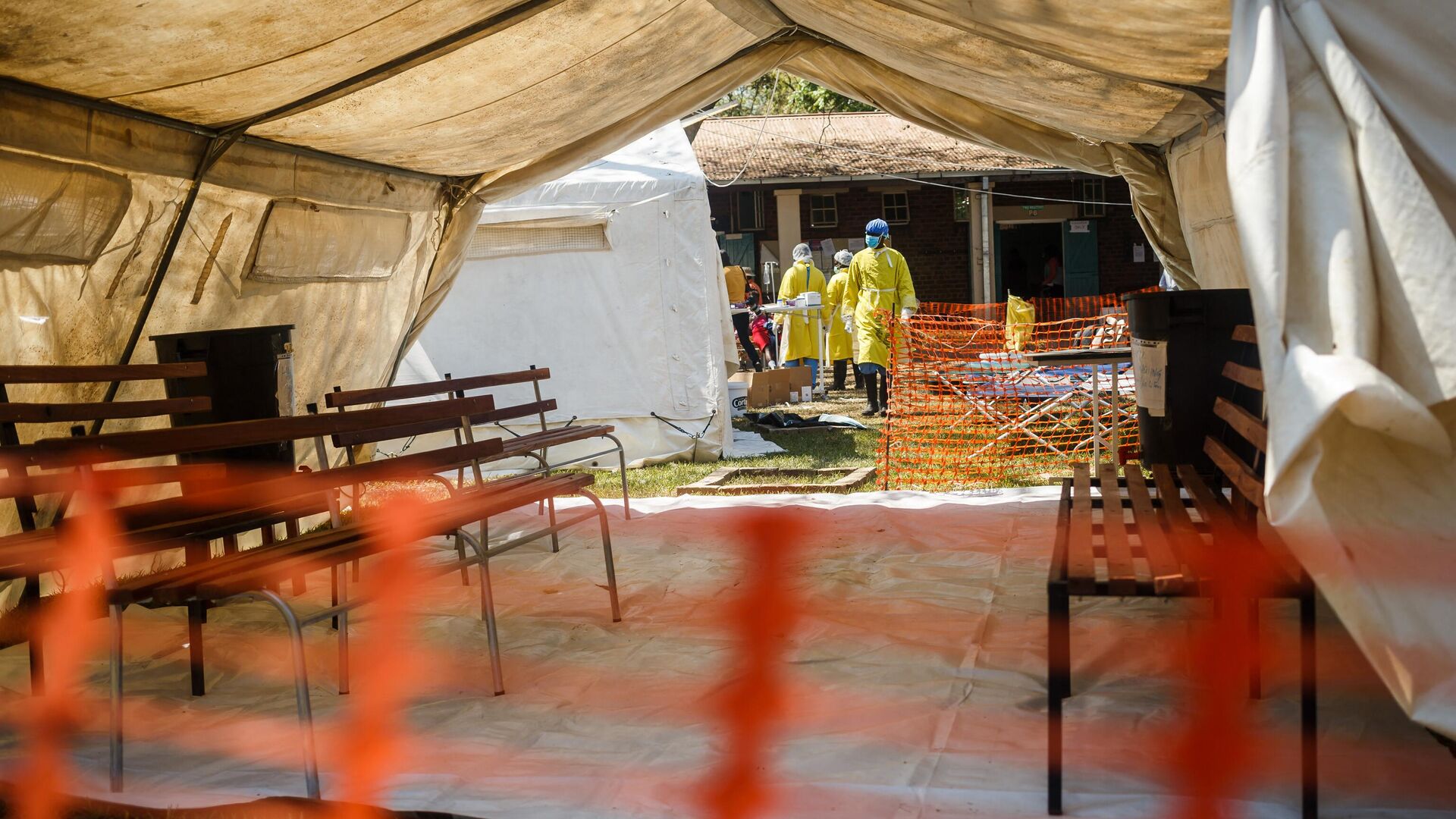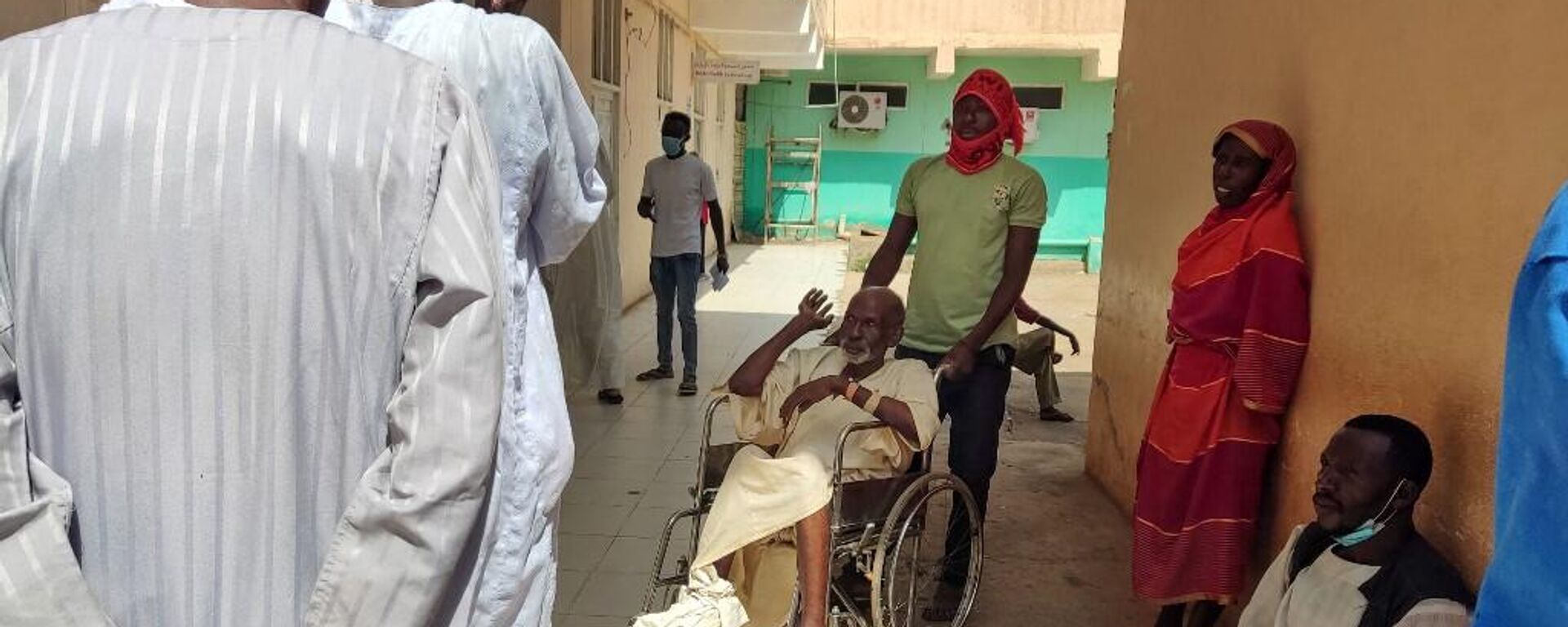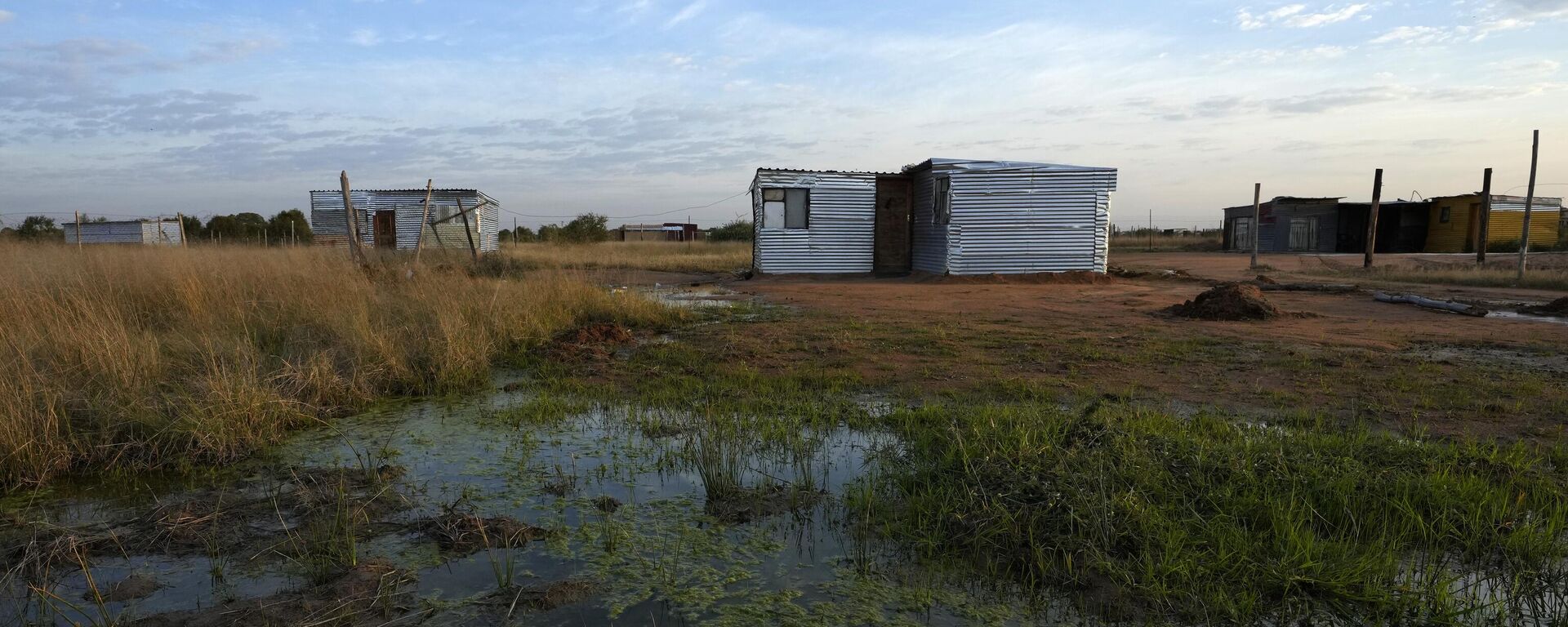https://en.sputniknews.africa/20231023/zimbabwe-struggles-to-contain-wave-of-cholera-infections-with-over-5000-cases-1063027223.html
Zimbabwe Struggles to Contain Wave of Cholera Infections With Over 5,000 Cases
Zimbabwe Struggles to Contain Wave of Cholera Infections With Over 5,000 Cases
Sputnik Africa
The cholera outbreak began in February in Chegutu, a town in the Mashonaland West Province of Zimbabwe. While cholera is endemic in Zimbabwe, there have been... 23.10.2023, Sputnik Africa
2023-10-23T16:25+0200
2023-10-23T16:25+0200
2023-10-23T16:25+0200
sub-saharan africa
southern africa
zimbabwe
cholera
disease
infection
health
health ministry
healthcare
emmerson mnangagwa
https://cdn1.img.sputniknews.africa/img/07e7/0a/17/1063027452_0:160:3072:1888_1920x0_80_0_0_b05d95eabff04d958a412c269b5c878e.jpg
Zimbabwe is currently facing difficulties in controlling the spread of a cholera outbreak, with the government announcing urgent measures to address the situation due to concerns about a recurrence of the 2008 outbreak, which resulted in a "national emergency." Cholera cases have been reported in all 10 provinces of the country, with the highest increases observed in the southeastern provinces of Masvingo and Manicaland. The latter, a province bordering Mozambique, alone has recorded more than 1,000 cases.With almost 5,000 possible cases of the waterborne disease in over 41 districts in all the 10 provinces, including the capital of Harare, and 100 suspected deaths, mostly occurring in September, officials are concerned about a repeat of the 2008 epidemic that claimed 4,000 lives.Against this backdrop, to control the spread of the disease, the government has introduced several restrictions. In particular, funerals are now limited to 50 people and attendees are not allowed to shake hands or serve food during the gatherings. Authorities also recommend avoiding open-air markets, unlicensed vendors, and outdoor church camps with poor sanitation.Cholera is an acute diarrheal disease that can cause death in as little as six hours without prompt treatment. Zimbabwe faces significant obstacles in achieving universal access to both safe drinking water and adequate sanitation, particularly in densely populated urban slums and rural areas.Earlier this month, Health Minister Douglas Mombeshora led a high-level fact-finding delegation to Buhera, an impoverished southeastern district, the epicenter of the current outbreak. Many residents of remote Zimbabwean villages lack access to tap water, with no choice but to draw from unsafe wells or rivers. The risk of disease spreading is heightened by raw sewage leaking from damaged pipes and piles of waste. These conditions, along with citizens' poor hygiene practices, have caused repeated outbreaks of diseases related to WASH (Water, Sanitation, and Hygiene), according to OCHA's report on the situation in the country. It was noted that the cholera outbreak has resulted in substantial harm, such as an increased burden on healthcare services, and socio-economic disruption. All age groups have been impacted, with the most vulnerable being children and the elderly.According to media reports, Zimbabweans are experiencing mounting challenges in accessing clean water and water purification supplies. Some residents are also concerned about the declining safety of boreholes.Last week, Zimbabwean President Emmerson Mnangagwa expressed deep concern over the recurrent cholera outbreaks in the country. He emphasized the need for broader intervention to combat "the public health menace." Specifically, the leader acknowledged the country's infrastructure challenges and announced that the government will implement a nationwide borehole drilling program in 35,000 villages. The program is part of a comprehensive plan to provide clean and safe water to people all over the nation.
https://en.sputniknews.africa/20231023/sudan-reportedly-hit-by-cholera-outbreak-with-over-800-suspected-cases-1063025911.html
https://en.sputniknews.africa/20230602/south-africa-sets-up-field-hospitals-to-contain-cholera-outbreak-1059663275.html
southern africa
zimbabwe
Sputnik Africa
feedback@sputniknews.com
+74956456601
MIA „Rossiya Segodnya“
2023
News
en_EN
Sputnik Africa
feedback@sputniknews.com
+74956456601
MIA „Rossiya Segodnya“
Sputnik Africa
feedback@sputniknews.com
+74956456601
MIA „Rossiya Segodnya“
southern africa, zimbabwe, cholera, disease, infection, health, health ministry, healthcare, emmerson mnangagwa, united nations humanitarian office (ocha)
southern africa, zimbabwe, cholera, disease, infection, health, health ministry, healthcare, emmerson mnangagwa, united nations humanitarian office (ocha)
Zimbabwe Struggles to Contain Wave of Cholera Infections With Over 5,000 Cases
The cholera outbreak began in February in Chegutu, a town in the Mashonaland West Province of Zimbabwe. While cholera is endemic in Zimbabwe, there have been no outbreaks since 2018 due to various preventive measures implemented throughout the nation.
Zimbabwe is currently facing difficulties in controlling the spread of a cholera outbreak, with the government announcing urgent measures to address the situation due to concerns about a recurrence of the 2008 outbreak, which resulted in a "national emergency."
Cholera cases have been reported in all 10 provinces of the country, with the highest increases observed in the southeastern provinces of Masvingo and Manicaland. The latter, a province bordering Mozambique, alone has recorded more than 1,000 cases.
With almost 5,000 possible cases of the
waterborne disease in over 41 districts in all the 10 provinces, including the capital of Harare, and 100 suspected deaths, mostly occurring in September, officials are concerned about a repeat of the 2008 epidemic that claimed 4,000 lives.
Against this backdrop, to control the spread of the disease, the government has introduced several restrictions. In particular, funerals are now limited to 50 people and attendees are not allowed to shake hands or serve food during the gatherings. Authorities also recommend avoiding open-air markets, unlicensed vendors, and outdoor church camps with poor sanitation.
Cholera is an acute diarrheal disease that can cause death in as little as six hours without prompt treatment. Zimbabwe faces significant obstacles in achieving universal access to both safe drinking water and adequate sanitation, particularly in densely populated urban slums and rural areas.
Earlier this month, Health Minister Douglas Mombeshora led a high-level fact-finding delegation to Buhera, an impoverished southeastern district, the
epicenter of the current outbreak.
"The cholera outbreak was attributed to poor sanitation and poor health seeking behaviors. As a preventive measure, the authorities will be drilling eight boreholes in the affected areas, engage religious leaders to encourage their congregants to seek medical care," the Ministry of Health said in a statement.
Many residents of remote Zimbabwean villages lack access to tap water, with no choice but to draw from unsafe wells or rivers. The risk of disease spreading is heightened by raw sewage leaking from damaged pipes and piles of waste.
These conditions, along with citizens' poor hygiene practices, have caused repeated outbreaks of diseases related to WASH (Water, Sanitation, and Hygiene), according to OCHA's report on the situation in the country. It was noted that the cholera outbreak has resulted in substantial harm, such as an increased burden on healthcare services, and socio-economic disruption. All age groups have been impacted, with the most vulnerable being children and the elderly.
According to media reports, Zimbabweans are experiencing mounting
challenges in accessing clean water and water purification supplies. Some residents are also concerned about the declining safety of boreholes.
"There used to be health workers who would move around communities distributing water purification tablets that we could use to treat open wells. That isn’t happening anymore," a resident of Buhera told media.
Last week, Zimbabwean President Emmerson Mnangagwa expressed deep concern over the recurrent cholera outbreaks in the country. He emphasized the need for broader intervention to combat "the public health menace." Specifically, the leader
acknowledged the country's infrastructure challenges and announced that the government will implement a nationwide borehole drilling program in 35,000 villages. The program is part of a comprehensive plan to provide clean and safe water to people all over the nation.



